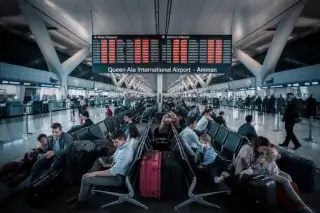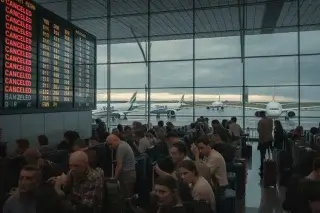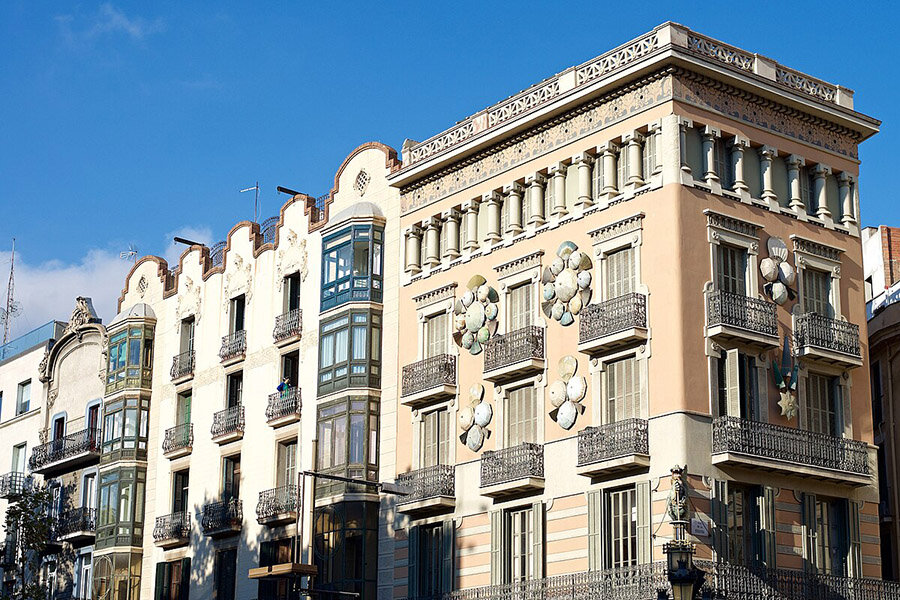read also
 Attack on Dubai, February 28, 2026: Timeline of Events and Impact on the Real Estate Market (Updating)
Attack on Dubai, February 28, 2026: Timeline of Events and Impact on the Real Estate Market (Updating)
 Russians Flee the UAE Amid Shelling
Russians Flee the UAE Amid Shelling
 Chaos at London and Manchester Airports: 293 Delays and 66 Flight Cancellations
Chaos at London and Manchester Airports: 293 Delays and 66 Flight Cancellations
 Flight Delays and Cancellations in Italy: More Than 200 Disruptions
Flight Delays and Cancellations in Italy: More Than 200 Disruptions
 Canada Aviation Disruptions: 226 Delays and 42 Cancellations in a Single Day
Canada Aviation Disruptions: 226 Delays and 42 Cancellations in a Single Day
 Russians in Israel Join Forces to Leave: War in the Middle East
Russians in Israel Join Forces to Leave: War in the Middle East
Short-Term Apartment Rentals in Barcelona Will Become Illegal

The Supreme Court of Spain has upheld Barcelona authorities' plan to ban short-term apartment rentals by 2028. An appeal arguing that this measure violates private property rights has been rejected,
Reuters reports. Investors will lose the opportunity to generate income from this business.
Barcelona City Hall previously proposed halting the issuance of new licenses and stopping renewals for short-term apartment rentals starting in the summer of 2024. Authorities cited the housing crisis driven largely by the popularity of short-term rentals, with rental prices increasing by 68% over the past decade. It is expected that by increasing the number of apartments available for long-term leases, rents will decrease, enabling locals to remain in Barcelona without being priced out.
Preliminary estimates suggest there are over 10,000 apartments used for short-term rentals in the city. Last year, Barcelona saw a record 94 million visitors, significantly higher than the previous average of 32 million. City authorities aim to redirect tourist flows to the hotel sector. However, representatives of Barcelona's Tourist Apartments Association (APARTUR) argue this decision is misguided, potentially increasing poverty, unemployment, and illegal rentals. Representatives of the hotel industry, of course, support these measures.
Barcelona is the first Spanish city to take such radical steps to curb rising rental costs. An attempt to challenge this decision in court has failed. Local authorities have announced that they will not renew tourist licenses for short-term rentals after 2028. The Constitutional Court’s ruling “confirms and provides legal certainty for this measure.” Before the ban takes effect, authorities plan to support creating new hotel rooms outside the city center. Other regions in Spain, such as the Canary Islands, are also restricting short-term rentals to control rising housing costs.
Barcelona recently announced a significant increase in tourist taxes, reaching €15 per person per night this year. This decision also addresses infrastructure overload and rising housing costs. David Cid, a representative of Comuns in parliament, stated that doubling the tax is fair and will not significantly affect tourist numbers. The tax will apply to hotels and properties rented via platforms like Airbnb, and increases will be gradual to allow adaptation by businesses and tourists.
Tourist tax hikes have become regular in Barcelona. In October 2024, rates rose from €3.25 to €4 per night, and nearly doubled to almost €8 in November. Currently, guests in five-star hotels pay €7.50 per night per person, while four-star hotel guests pay €5.70.
Many residents of Spain are likely to welcome these measures. Numerous protests against excessive tourism have taken place, peaking in July 2024 when thousands of Barcelona residents poured water on diners in tourist areas. In November, protests demanded lower rental prices. UNESCO has expressed concerns that these protests might spread to other European countries.
The Association of Tourist Apartments of Costa Brava-Pirineu de Girona (ATA) expressed disappointment in this latest proposal, claiming it could harm the sector. Foreign investors who bought properties for rental income are expected to suffer most from these changes. Meanwhile, Spain is considering other initiatives, such as introducing a 100% tax on property purchases by foreigners or banning property transactions entirely for non-EU citizens.


